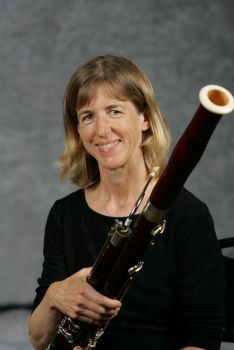|
Symphony
FROM THE NEW WORLD TO THE OLD WORLD
by Peter Lert
Saturday, June 14, 2025
Chamber
MC2 DUO RECITAL CLOSES 222'S SEASON
by Terry McNeill
Saturday, June 14, 2025
Choral and Vocal
CANTIAMO SONOMA'S LUSCIOUS A CAPELLA SINGING IN SEASON ENDING CONCERT
by Pamela Hicks Gailey
Sunday, June 8, 2025
Symphony
SRS SEASON ENDS WITH RESOUNDING TA-TA-TA-BANG
by Terry McNeill
Sunday, June 1, 2025
Symphony
YOUTHFUL VIRTUOSITY ON DISPLAY AT USO'S MAY CONCERTS
by Peter Lert
Saturday, May 17, 2025
Symphony
MYSTICAL PLANETS AND LIVELY GERSHWIN ORTIZ AT FINAL SRS CONCERT
by Peter Lert
Sunday, May 4, 2025
Symphony
VSO'S CONCERT MUSIC OF TIME, MUSIC OF PLACE
by Peter Lert
Sunday, April 27, 2025
VOCAL ELEGANCE AND FIRE AT THE 222'S RECITAL APRIL 26
by Pamela Hicks Gailey
Saturday, April 26, 2025
CANTIAMO SONOMA SINGS AN INSPIRED GOOD FRIDAY MOZART REQUIEM CONCERT
by Pamela Hicks Gailey
Friday, April 18, 2025
DRAMATIC SHOSTAKOVICH SYMPHONY CLOSES PHILHARMONIC'S 25TH SEASON
by Terry McNeill
Sunday, April 13, 2025
|
 |
 Bassoonist Carla Wilson |
SYMPHONY'S STRAVINSKY A WIND AND RHYTHMIC FEAST
by Terry McNeill
Monday, December 8, 2014
Santa Rosa Symphony conductor Bruno Ferrandis put together a curious program mix Dec. 8 in Weill Hall that on paper promised a culture clash, but actually delivered a memorable musical experience.
Composers often fashion suites from orchestral works, and just as often the shorter suite can be more effective than the complete piece. Stravinsky’s 1920 ballet Pulcinella in the popular abridged form is a familiar concert piece, but the complete work comprised the program’s second half, and it’s far more effective than the Suite from 1935. And in just over forty minutes it was a feast for the Symphony’s ten wind and brass instruments.
Soprano Kindra Scharich, tenor Jonathan Smucker and bass Kirk Eichelberger formed the solo trio and sang the parts in an animated but sometimes ungrateful Neapolitan Italian. But the evening’s standout performances came from stellar oboist Laura Reynolds; flutists Kathleen Lane Reynolds and Stacey Pelinka (doubling on piccolo); bassoonists Carla Wilson and Karla Ekholm; and the lone trombone player, Bruce Chrisp. Lovely duets abounded: cello and trombone, bassoon (not always playing together) and oboe-flute. The conductor’s mastery of Stravinsky’s complex rhythms was admirable, and concertmaster Joseph Edelberg played elegant and succinct solos.
In the first half the 37-member Augsburg Boys Choir performed six a capella motets and were the chorus for Mozart’s Coronation Mass, K. 317. Though the six selections in German had variety, including antiphonal stage grouping in Praetorius’ Nun komm, der Heiden Heilen, Lassus’ forceful and complex Tui sunt cáeli, et túa est térre and the Philipp Silcher celebratory Christmas song In dulci jubilo, they lacked cumulative dramatic impact. Technically attacks and cutoffs were good but often phrases were choppy and from my balcony seat the high tessitura was at times muddy. The frequent group movements on stage seemed unnecessary and time consuming.
Choir Director Reinhard Kammler conducted and was at the piano for a choral encore, the carol “Oh Holy Night,” beginning in English with subsequent stanzas appearing to be in the original French. The ovation from the nearly full Weill audience was loud.
Mozart’s short C Major “Coronation” Mass from 1779 concluded the first half in a rousing performance with three boys from the Augsburg group joining Mr. Smucker as the vocal quartet. Occasionally the orchestra covered the Choir and Mr. Ferrandis worked hard with quick eye and baton movements to get a balanced blend of sound. Used as a continuo, the organ was mostly inaudible through four speakers at back stage left, and the real sonic underpinning came from the brass, timpanist Andrew Lewis and four bass viols.
With quick tempos and piquant drama the Mass had a thoroughly graceful and Mozartian flair, with beautiful singing in the Benedictus. The unnamed-in-the-program Augsburg boy soprano sang with fervor, but I missed the color and range of a real soprano. Ms. Scharich’s operatic voice would have been a formidable substitute.
|

